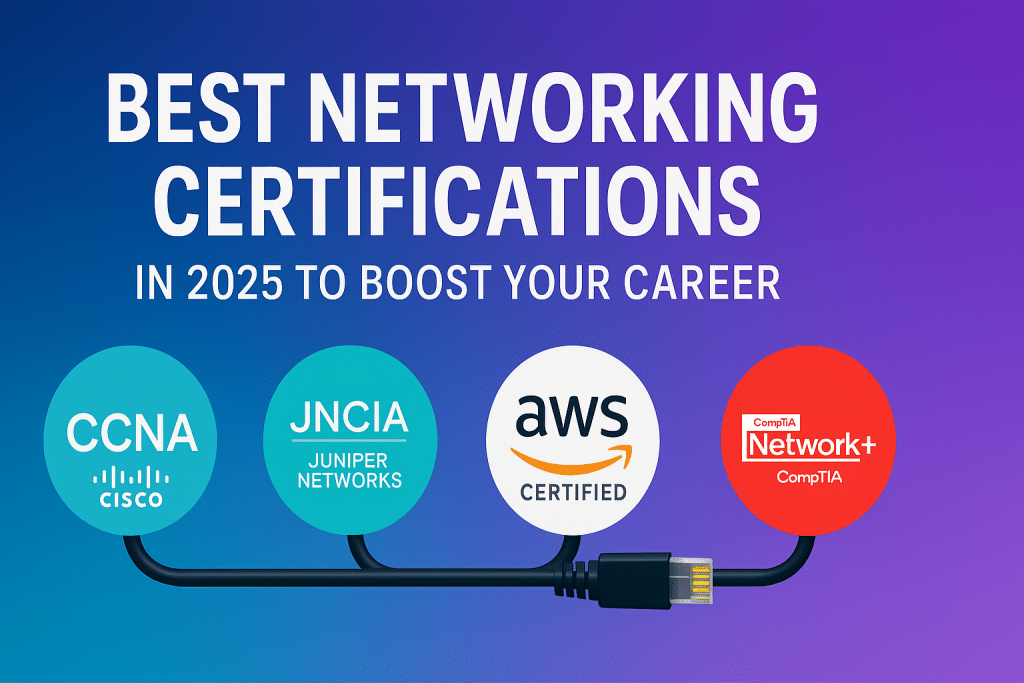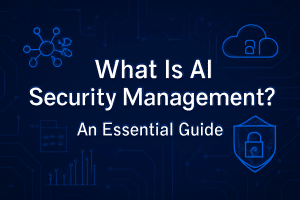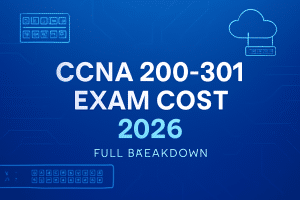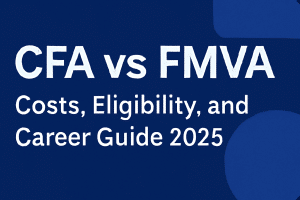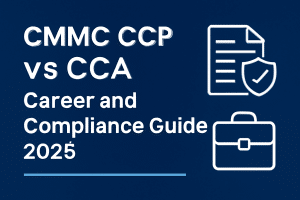Today’s a tech-driven world, and networking is the backbone of modern infrastructure. Whether connecting cloud systems, managing enterprise-level communication, or securing digital environments, skilled networking professionals are in high demand.
And what’s the fastest way to stand out? Certifications. They validate your skills and show employers you can deal with real-world challenges.
In 2025, the fierce competition and the right cert can push your career into high gear.
Let’s discuss the best networking certifications in 2025 to boost your career.
The 7 Best Networking Certifications Making Waves in 2025
Networking isn’t just cables and servers anymore; it’s the backbone of everything digital. If you are serious about making waves in this field, you need to pick a certification of networking technologies that get you noticed.
Let’s dig into the networking fundamentals that are turning heads in 2025.
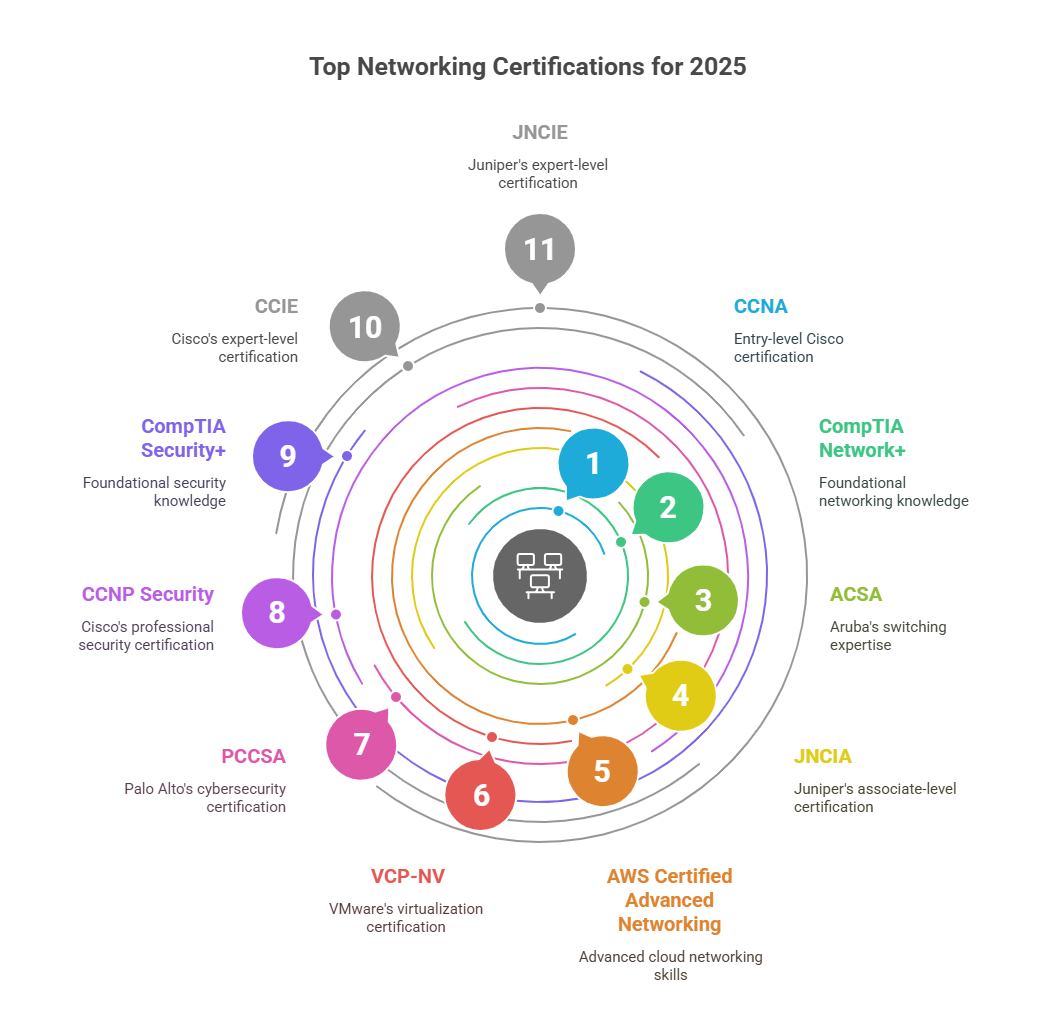
1- CCNA Certification: The Old but Gold Option
You’ve heard of it, maybe even thought about it, CCNA (Cisco Certified Network Associate). It’s been around forever, but it’s still a go-to for entry-level networking pros. Why?
Because Cisco is everywhere. Walk into most data centers, and you will see Cisco switches and routers doing their thing.
What You Actually Learn
CCNA is your networking survival kit. You get into the nitty-gritty of routing, switching, and basic network security. If you’re planning to start your journey, here’s a complete CCNA 200-301 study guide with practical strategies that breaks down each topic in a beginner-friendly way. For extra prep, try these CCNA 200-301 exam questions to get familiar with real Cisco test scenarios.
You will learn how to troubleshoot connectivity issues, network access, IP connectivity, configure network devices, and even handle a bit of wireless tech. These are hands-on skills, not fluff, so what you learn here? You’ll use it, daily, and you might as well learn to diagnose, repair, restore, and replace critical cisco networking.
Where It Takes You
Think roles like network administrator or support engineer. If you want to pivot into cybersecurity later, CCNA’s got your back. The demand for Cisco-trained folks isn’t slowing down, and with this cert, you’re already on the inside track.
2- CompTIA Network+: The Jack-of-All-Trades
If you are starting fresh or don’t want to tie yourself to a single vendor, Network+ is your best friend. It’s broad, touching everything from basic networking concepts to cloud technologies. For those planning to pursue the latest version, this updated CompTIA N10-009 certification guide for 2025 outlines everything from exam structure to top study tips. Boost your readiness with a free Network+ practice test and measure how well you understand networking fundamentals.
Why It’s Useful
Network+ gives you a 360-degree view of Linux, Windows, and the cloud. It’s perfect for IT generalists or people figuring out where they want to specialize in network virtualization. Employers love it because it shows you have got the network security fundamentals down without being stuck in one vendor’s world.
Job Options
Network+ preps you for roles in IT support or as a junior network tech. Want to work for a government agency? Many of them list Network+ as a requirement.
3- Aruba Certified Switching Associate (ACSA): The Rising Challenger
You might not think of Aruba off the bat, but it’s carving out a niche, especially in wireless networks and networking. Its focus on mobile-first and cloud-first solutions makes it a solid bet for the future for a network engineer.
What’s in It for You
ACSA dives deep into advanced switching and traffic management. Businesses are getting rid of outdated wired setups for leaner, smarter networks, and that’s where Aruba thrives. This cert arms you with the know-how to handle modern infrastructures.
Why It’s Worth It
More businesses are using Aruba for mobile-first setups. Being ACSA certified puts you ahead of the curve when companies are upgrading their network tech.
4- JNCIA (Juniper Networks Certified Associate): A Strong Alternative
Not every business runs on Cisco gear. That’s where Juniper comes in, providing expertise for security specialists . Their JNCIA cert is the door to learning Junos OS, a platform that’s fast, reliable, and gaining traction.
What Makes It Stand Out
Juniper’s focus is automation. You’ll learn scripting and tools to automate repetitive network tasks. This is a big deal as businesses look to streamline operations.
Why Companies Love It
Fewer people are JNCIA certified compared to CCNA, so you’re already rarer in the job market. Plus, companies running Juniper often pay more for specialists since the pool of experts is smaller.
5- AWS Certified Advanced Networking: When Networks Meet the Cloud
The line between networking and cloud is blurred. If you’re serious about working in hybrid setups, especially in cloud security this AWS cert is gold.
Skills That Stick
You’re looking at advanced topics like setting up VPNs between on-prem and cloud, troubleshooting latency issues, and optimizing multi-cloud environments. You’ll become a wizard in managing how data flows in and out of AWS.
Career Perks
AWS networking specialists are in demand. Cloud architects, DevOps engineers, and even senior IT managers value this cert. If you’re aiming high, this is the way.
6- VMware Certified Professional (VCP-NV): Virtualization is the Future
Data centers are going virtual, and VMware’s VCP-NV cert ensures you’re ready for the shift. It’s all about NSX, their software-defined networking (SDN) platform.
Why You Should Care
Traditional networks are fading. SDN allows networks to be managed by software instead of hardware, and VMware is leading the charge. Knowing how to deploy and manage NSX for network operations makes you a valuable asset.
Where It Shines
If your company is moving to virtualized environments, this cert puts you in the driver’s seat. Think of roles like network virtualization engineer or cloud infrastructure specialist.
7- Palo Alto PCCSA: Networking with a Side of Security
Networking without security is asking for trouble, and that’s where PCCSA steps in. It’s a beginner-level cert but teaches you critical security concepts.
Best Networking Certifications in 2025 – Quick Comparison
| Certification | Focus Area | Career Paths | Avg. Salary Range | Difficulty / Validity |
|---|---|---|---|---|
| CCNA (Cisco) | Routing, switching, network security basics | Network Administrator, Support Engineer | $70K – $100K | Entry to Mid • 3 years validity |
| CompTIA Network+ | Vendor-neutral networking concepts, cloud basics | IT Support, Jr. Network Tech | $65K – $90K | Beginner • 3 years validity |
| Aruba ACSA | Wireless-first & advanced switching | Network Engineer, Wireless Specialist | $80K – $110K | Intermediate • 3 years validity |
| JNCIA (Juniper) | JunOS, automation, scripting | Network Specialist, Automation Engineer | $75K – $110K | Intermediate • 3 years validity |
| AWS Advanced Networking | Hybrid & multi-cloud networking | Cloud Architect, DevOps, IT Manager | $100K – $140K | Advanced • 3 years validity |
| VMware VCP-NV | Software-defined networking (NSX) | Network Virtualization Engineer, Cloud Specialist | $95K – $130K | Advanced • 2 years validity |
| Palo Alto PCCSA | Networking + entry-level security | Security Analyst, Jr. Firewall Admin | $65K – $95K | Beginner • 2 years validity |
Why It Matters
Cybersecurity and networking are increasingly overlapping. PCCSA introduces you to managing firewalls, securing topologies, and even the basics of threat detection, encompassing security fundamentals .
What’s Next
PCCSA sets you up to pursue higher-level certs in cybersecurity. It’s a solid starting point if you want to specialize in securing networks.
Each of these certifications has its niche, but they all share one thing in common: they’re built to prepare you for the demands of the modern tech world.
How to Choose the Right Networking Certification for Your Career Goals
Let’s face it. There are a ton of networking certs out there. Some are flashy and hyped up, while others are the real deal for the jobs you’re chasing.
Picking the wrong one can waste time and money, so let’s break it down and make this decision easier.
Think About Your Career Goals
Your career goals should guide your choice, be it Cisco certification, Cisco certified technician, Cisco certified network architecture, essential networking concepts are mandatory to learn for an entry level certification. If you’re aiming for a specialized role, like working on Cisco networks or focusing on Juniper systems, go for vendor-specific certs like CCNA or JNCIA. They’ll get you deep into that ecosystem, which is exactly what those jobs demand.
But if you’re still figuring out where you fit, a broader cert like CompTIA Network+ or critical Cisco networking is your best bet. It covers a lot of ground without locking you into one vendor, so you get the flexibility to explore.
Look at Your Starting Point
If you’re a total beginner, don’t jump into advanced certs right away. Starting with foundational ones, like Network+, gives you the basics you’ll need for any networking role. You might also explore this list of the easiest networking certifications for beginners, which highlights starter-friendly options to build your foundation.
On the flip side, if you’ve already been in the field for a while, go for certs that add value, like the AWS Certified Advanced Networking or VMware VCP-NV, or Cisco Certified Network Professional, which target more experienced pros.
Match Certs with Industry Trends
Networking isn’t stuck in the past of data center technologies. Trends like cloud computing, automation, and SDN (software-defined networking) are reshaping how things work. If you’re interested in where the industry’s headed, pick certs that align with these shifts.
- Cloud-focused certs like AWS Advanced Networking are great if you are eyeing hybrid or multi-cloud roles.
- SDN certs like VMware’s VCP-NV prepare you for the shift to virtualized environments.
- If automation sounds cool to you, JNCIA includes training on network scripting, making it future-ready.
Consider the ROI
Certs aren’t cheap, so think about the return on investment. Sure, some certs like CCNA cost less upfront, but they can open doors to higher-paying jobs. On the flip side, advanced certs like AWS Advanced Networking may be pricier but lead to roles that pay significantly more.
Here’s a quick tip: Research job boards to see what certs are listed for roles you want. If certain certs keep popping up, they’re worth the money. You can also check out this guide on the highest-paying networking jobs in 2025 to see which certifications align with top salaries
Short-Term vs. Long-Term Goals
Are you just looking to get a job ASAP, or do you want to set yourself up for future growth? For quick wins, entry-level certs like Network+ or CCNA are perfect for those pursuing a career in network administration . They’ll land you a job and give you hands-on skills in operating systems.
If you’re playing the long game, think strategically. For example, cloud roles are growing fast, so certs like AWS Advanced Networking or VMware’s VCP-NV might be better if you want to future-proof your career.
Your Learning Style Matters
Some certs are very hands-on (think CCNA, where labs, managing networks, and simulations are a must), while others lean more on theoretical knowledge, like Network+. Choose something that fits how you learn best.
Don’t Forget the Employer’s Perspective
At the end of the day, certs are about proving your skills to employers. Some certs, like CCNA, are universally respected, while others, like JNCIA, cater to niche markets. If you’re targeting a specific company or industry, find out what they value.
Practical Steps to Prepare for Networking Certifications
Getting ready for networking certs isn’t just about reading a book and crossing your fingers on exam day. It’s about building real-world skills that’ll stick with you when the test is long behind you.
If you are diving into this journey, here’s how you can prepare effectively and smartly.
Hands-On Experience Is Key
You can’t learn networking by just reading theory. You’ve got to get your hands dirty. Practice labs and simulators are your best friends here. They let you mess around with routers, switches, and configs without blowing up an actual network.
For example, tools like Cisco Packet Tracer or GNS3 are great for simulating real networking environments. Spend time configuring VLANs, troubleshooting OSPF, and experimenting with security settings. These skills don’t just help you pass the test—they prepare you for the day-to-day grind in networking roles.
Mix Up Your Study Materials
Relying on just one source is a rookie mistake. Sure, official study guides are great, but they can be dry and repetitive. Mix it up with online courses, YouTube tutorials, and mock exams. Platforms like CBT Nuggets and Udemy are packed with easy-to-follow courses.
Mock exams, in particular, are a game-changer. They help you get comfortable with the exam format and timing. You can also try N10-009 dumps for the 2025 exam, which highlight frequently tested concepts and save you time during review. You’ll spot your weak areas early on and have time to fix them before the real deal.
Join a Community
Studying solo can get boring fast. Plus, you’ll miss out on tips and tricks that others have picked up along the way. Joining forums or study groups can give you fresh insights and resources you might not find on your own.
Places like Reddit’s r/ccna or networking forums have active communities where people share notes, practice questions, and success stories. It’s also a good way to stay motivated when burnout hits.
Don’t Skip the Exam Objectives
Every cert has a list of objectives or topics the exam will cover. Use this as your checklist. Mark off the areas you’ve mastered and spend extra time on the stuff that confuses you. For example, if subnetting makes your head spin, dedicate extra practice time to it.
Be Consistent with Your Schedule
Networking certs aren’t something you can cram for. Create a schedule that works for you, whether it’s two hours a day or longer sessions on weekends. Stick to it, even when you’d rather binge-watch something. Small, consistent efforts beat last-minute cramming every time.
Use Exam Dumps by Cert Empire
Alright, let’s get real for a second. Studying is tough, especially when you have got a job, classes, or life getting in the way. That’s where exam dumps come in handy.
Cert Empire is a trusted source for up-to-date PDF exam resources, offering curated dumps aligned with real exam formats. They’ve got updated questions, so you won’t be blindsided on test day. If you’re targeting Cisco, check out these CCNA 200-301 exam dumps, which include focused questions that reflect real exam patterns. Plus, these dumps often highlight the topics that get repeated in exams. Use them as a supplement, not a shortcut, to reinforce what you’re already studying.
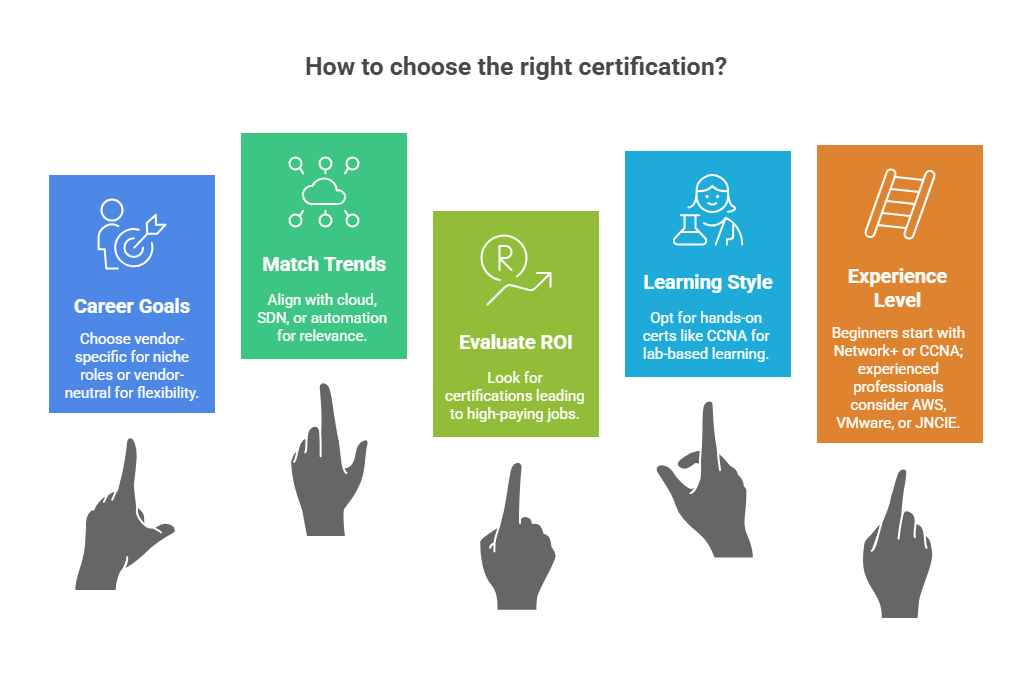
What You Will Gain Beyond Technical Skills with Networking Certifications?
Certifications are a ticket to personal and professional growth that extends far beyond the hardware and software.
Here’s what they bring to the table.
Confidence to Take on Challenges
When you’ve put in the hours to earn a cert, it’s not just your resume that gets a boost—your confidence does too. Knowing you’ve mastered tough concepts and can apply them in real-world situations makes a huge difference. Whether you’re troubleshooting a network outage or leading a project, that cert-backed confidence gives you the edge.
Instant Credibility
Let’s face it, IT is competitive, and it’s hard to stand out. A cert isn’t just a piece of paper; it’s proof that you’ve got the skills employers are looking for. When a recruiter sees a CCNA or AWS badge on your profile, they know you’ve passed the test and have a solid understanding of the field.
This credibility doesn’t just apply to hiring managers. Your peers and team members will also respect the work you’ve put in. It shows you’re serious about your career and ready to tackle complex tasks.
A Path to Leadership
Technical skills are great, but leadership roles require more. Certifications show you’re committed to professional growth, which is often a stepping stone to leadership opportunities. With the knowledge and problem-solving skills you gain, you’ll be better equipped to manage projects, mentor juniors, or even take on managerial roles.
A Community of Like-Minded Professionals
Many cert programs come with built-in networking opportunities. From LinkedIn groups to local meetups and global conferences, you’ll find a community of professionals who share your interests in network infrastructure. These networks are invaluable for staying updated on industry trends, sharing insights, and even finding job opportunities.
Access to Exclusive Resources
Some certifications come with perks you might not expect, access to exclusive training materials, forums, and even discounts on future certs. These resources can help you stay ahead of the curve and keep your skills sharp long after you’ve passed the exam.
Boosted Career Mobility
Certifications make it easier to switch roles or industries. Want to transition from a general IT role to a cloud-focused career? An AWS cert can help. Thinking of moving into cybersecurity? A cert like PCCSA could be your entry point. They give you the flexibility to adapt as the tech landscape changes.
Conclusion: Why 2025 Is the Year to Invest in Networking Certifications?
Tech is moving faster than ever, and the demand for networking pros is skyrocketing. Whether you’re a beginner or looking to specialize, the right certification can set you apart and help you thrive in an ever-connected world.
So, why wait to focus on network administration? Start now and make 2025 the year your career takes off with skills to support networks.
Frequently Asked Questions About Networking Certifications in 2025
1. Can I get a job with just a certification and no degree?
Yes, many networking roles don’t require a degree if you have the right certs and hands-on experience. Entry-level jobs like network technician or help desk support are attainable with certs like CCNA or Network+.
2. Do certifications expire?
Yes, most networking certs have an expiration period. For example, CCNA is valid for three years, after which you’ll need to recertify. Always check the recertification process for your chosen cert.
3. Are vendor-neutral certs better than vendor-specific ones?
It depends on your goals. Vendor-neutral certs like Network+ offer a broad foundation, while vendor-specific certs like CCNA or JNCIA prepare you for specific technologies.
4. Can I self-study for networking certifications?
Absolutely! Many people pass cert exams through self-study using books, online courses, and practice labs. However, some may prefer structured bootcamps or classes for guidance.
5. Are there free resources for studying networking?
Yes, platforms like Cisco Networking Academy, YouTube, and Reddit offer free tutorials, forums, and guides. However, investing in official study materials often ensures deeper coverage.
6. Which certs are best for cybersecurity-focused networking roles?
Certs like PCCSA (Palo Alto Networks), CCNP Security, or CompTIA Security+ are great for networking and cybersecurity roles.
7. What’s the hardest networking certification?
Certs like CCIE or JNCIE are considered the toughest due to their advanced topics and rigorous practical exams. Professionals typically pursue these with years of experience.
8. Do I need prior IT experience to start with networking certifications?
No, beginner-level certs like Network+ or CCNA are designed for those without prior experience. However, having basic computer knowledge can be helpful.
9. Can certifications boost my salary immediately?
Yes, certifications often lead to higher salaries or better roles. However, the impact depends on your current position, the cert you earn, and the job market in your area.
10. How do I choose between CCNA and JNCIA?
Choose CCNA if you want a broader understanding and Cisco’s technology focus. JNCIA is better for those interested in Juniper’s ecosystem and advanced concepts like automation.
11. Are older certifications still relevant?
It depends. Some older certs like CCNA remain highly relevant due to frequent updates. Always check if the cert aligns with current industry trends.
12. Is it worth getting multiple certifications?
Yes, especially if they complement each other. For instance, combining a CCNA with an AWS cert shows expertise in both traditional and cloud networking.
13. What role do soft skills play in networking careers?
Soft skills like communication, teamwork, and problem-solving are crucial. Certifications validate technical skills, but soft skills often determine success in real-world scenarios.
14. Can online proctored exams replace test-center exams?
Yes, most certifying bodies now offer online proctored exams, making it easier to take tests from home. Just ensure you have a stable internet connection and meet system requirements.
15. Are simulations included in all networking certification exams?
Not all exams include simulations. Vendor-specific exams like CCNA often include hands-on simulations, while vendor-neutral ones like Network+ may rely more on multiple-choice questions.

